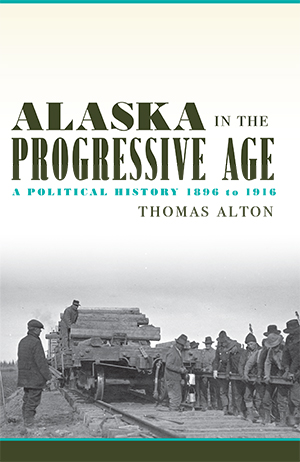UA Press book looks at national politics and ÐÓ°Épro Territory
October 4, 2019
 The University of ÐÓ°Épro Press has released a new history title, "," by Thomas Alton.
The University of ÐÓ°Épro Press has released a new history title, "," by Thomas Alton.The growth of modern-day ÐÓ°Épro began with the Klondike gold discovery in 1896. Over the course of the next two decades, as prospectors, pioneers and settlers rushed in, ÐÓ°Épro developed its agricultural and mineral resources, birthed a structure of highway and railroad transportation, and founded the ÐÓ°Épro cities we have today. All this activity occurred alongside the Progressive Age in American politics. It was a time of widespread reform, as Progressive politicians took on the powerful business trusts and enacted sweeping reforms to protect workers and consumers.
The traditional view of ÐÓ°Épro history is that the territory was neglected and even abused by the federal government. Alton argues, however, that from 1896 to 1916 ÐÓ°Épro benefitted richly in the age of Progressive democracy. As the population of ÐÓ°Épro grew, Congress responded to the needs of the nation’s northern possession, giving the territory a delegate to Congress, a locally elected legislature, and, ultimately in 1914, the federally funded ÐÓ°Épro Railroad.
Much has been written about the development of ÐÓ°Épro, especially in terms of the Gold Rush and the origins of the ÐÓ°Épro Railroad. But this is the first history to examine this era within the context of Progressive Age American politics. It is a look at how Progressivism reached the furthest corners of the United States at the beginning of the twentieth century and helped to transform ÐÓ°Épro into the modern state we know today.
Thomas Alton worked as an editor at the ÐÓ°Épro Native Language Center at the University of ÐÓ°Épro Fairbanks. Now retired, he continues to live and write in Fairbanks. He contributed to "," also from the University of ÐÓ°Épro Press.
For more information about this title and many more please visit or call 800-621-2736.


